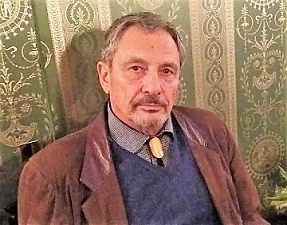Editor's note
International Internet Magazine. Baltic States news & analytics
Saturday, 27.04.2024, 01:08
“Smart growth” and wellbeing: challenges for the Baltics
 Print version
Print version |
|---|
Since 2011, the EU states are obliged to introduce in their
national planning the so-called “smart specialisation strategies”, often called
by the abbreviation - 3S. Important thing is that in the Baltic States the 3S
approaches are having both some common aspects and, evidently, some quite
specific national ones.
As soon as the 3S has become a must for the Baltic States,
there are good reasons to believe that these common aspects (like pollution
prevention, sustainability and digital society, to name a few) would provide
for closer cooperation frameworks. My personal opinion is that the title of our
magazine –“the Baltic Course- can be used as a general guideline in such
cooperation among the three countries.
There is a wonderful example of three-state’ cooperation in
Europe, i.e. Benelux, which started as a customs convention among Netherlands, Belgium and Luxembourg
signed in September 1944. In October 1949, these three countries adopted a
preliminary Benelux union treaty followed by the Benelux Economic Union Treaty
(finally signed in February 1958), in which they declared to achieve the free
movement of people, goods, capital and services as well as to pursue a
coordinated policy in economic, financial and social matters; the Treaty
entered into force in 1960. Thus these countries successfully celebrated the 60th anniversary
of Benelux cooperation, which a good example to emulate for the Baltic States.
More in: https://www.netherlandsworldwide.nl/latest/news/2018/10/19/benelux-seminar-60-years-of-cooperation
The achievements are
obvious: Benelux’ governments communicate digitally with their citizens for
more than 60 % and governments
communicate digitally with companies for more than 90 per cent. Source: https://www.benelux.int/files/4414/9621/5736/benelux_onepage_EN.pdf
Besides, Latvian researchers have already more than twenty
years ago mentioned the positive example of Benelux cooperation for the Baltic
States.
See e.g. Lieģis
I. The Benelux Countries: A Model of Cooperation for the Baltic
States/Benilukss – sadarbības paraugs Baltijas valstīm/. - Riga: Latvian
Institute of International Affairs, 1997. - 82 p.
On the European “smart specialisation”
The concept of “smart specialisation” emerged after the
global financial crisis that has had dramatic consequences for European and the
Baltic States too. In three 3S denominations, the “smart” growth means
that the EU states have to explore mainly innovative approaches to development
based on the outcomes and perspectives of the 4th technological revolution.
More in: https://www.weforum.org/focus/fourth-industrial-revolution
Another “S”- specialisation – is about the states and
regions’ optimal capacities in using available resources (natural, human, etc.)
in achieving competitive advantages in Europe and globally.
Then, finally, the “strategic” aspect in growth means defining the
best perspective vision for any state/region in the long-term perspective.
It is important to note that a uniting factor in 3S is a
strategic economic growth in any state shall be achieved –generally - through
support from science, research and innovation.
More in: Sparitis O. and Eteris E. Modern European science
policy: challenges and opportunities for Latvian perspective growth.
- SIA Medicinas Publish. 2019. – 124 pp.
On the Baltic States’ 3S priorities
During last five years, the three Baltic States have seen some common
and specific approaches to “smart specializations”. For example, Estonian 3S
approach includes:
e-health; bio-technology (incl. healthy food, medicine, diagnostics,
therapy and bio-banking); ICT industry and robotics; as well as other ICT’s
application (incl. cybersecurity, robotics, e-governance and “big data”); materials
technology, and rational use of natural resources.
However, the Latvian 3S approach seems rather different
concentrating on: knowledge intensive bio-economy; biomedicine and medical technologies;
smart materials, technology and engineering; advanced ICT; and smart energy;
Finally, 3S in Lithuania has been slightly different too,
including: agricultural innovations and food technologies;
sustainable energy; new materials, production processes and technologies;
health- and bio-technologies; transport, logistics and ICT; inclusive and
creative society.
More on 3S composition in the EU’s
sub-regional integration in: Eteris E. EU’s macro-regional cooperation:
smart specialisation approach. In:
http://www.baltic-course.com/eng2/modern_eu/?doc=154109
Conclusion
Taking into consideration the EU’s strategic agenda (mainly,
the “green deal” and digital economy), the 3S-concept is supposed to drive the
states’ growth pattern along “smart specialisation” regarding their own
resource/priorities and competition’s challenges.
However, specialization’s trends in the BSR states do not
seem to create “national growth niches” with one-two-three major development
directions; examples in some Nordic/Baltic States have shown that the specific
diversification is rather broad!
On the contrary, there are numerous overlapping and
integrated 3S spheres providing for closer cooperation among the countries in
BSR. These factors show that it is high time for a more radical political
decision towards “common 3S dimension” among the Baltic States, where innovations occupy
leading positions.
General links: = Commission’s website on 3S platform: https://s3platform.jrc.ec.europa.eu/s3-platform;
= More on the EUSBSR in: https://s3platform.jrc.ec.europa.eu/s3-in-baltic-sea-region











